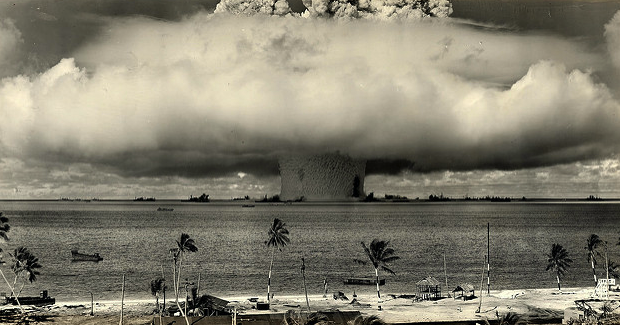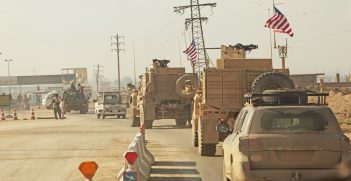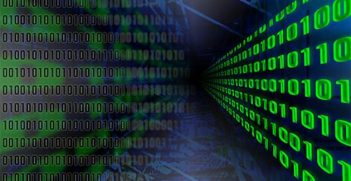Big Bombs and Big Egos: Pyongyang and Washington

Of all the problems undermining the idea of a rules-based international order, none is more unpredictable, dangerous and alarming than what to do about North Korea.
The fact that all the options for diffusing tensions on the Korean Peninsula seem awful and fraught with potentially apocalyptic risks has left the ‘international community’ looking even more impotent than usual.
It is not just that the Democratic People’s Republic of Korea (DPRK) possesses an increasingly potent-looking nuclear arsenal that is giving strategic types nightmares. Plenty of other countries have the same, of course. What makes North Korea so scary is that its youthful leader Kim Jong-un clearly thinks that his threats and brinkmanship are actually the key to regime survival. His confidence may be misplaced, however.
Unfortunately, Kim is not the only unpredictable, untested and erratic international leader with the potential to overturn the established order. Donald Trump also has little strategic nuance and a monumental ego. These are not the ideal qualities for the most powerful man in the world at the best of times; these times are clearly not that.
For a president increasingly irritated by his inability to make progress on a number of domestic and foreign policy issues, the temptation to do something about a continuing irritant and affront to American power and Trumpian dignity must be growing.
To judge from President Trump’s increasingly bellicose rhetoric the tipping point may be closer than many think. True, Trump is a byword for bluster and preposterously inflated langauge, but his latest threat to rain down “fire and fury and frankly power, the likes of which this world has never seen before” on North Korea is striking even for Trump. If Kim declines to be intimidated, what’s left for an impotent-looking American administration?
Optimists hope that by appointing more generals to his administration Trump will be influenced by ‘serious’ people with a demonstrated capacity for management and coordination. Perhaps so. But it is also the case that the likes of Chief of Staff John Kelly, Secretary of Defense James Mattis and H.R. McMaster at the National Security Council might be expected to see the world through a military prism. That is, after all, their principal life experience.
Even Secretary of State Rex Tillerson is woefully lacking in the sort of diplomatic expertise that one might expect to see in such a prominent position. The fact that the Trump administration has still failed to appoint people to potentially critical positions such as Assistant Secretary of East Asian and Pacific Affairs means that it simply doesn’t have the requisite expertise to make informed judgments about the region of which North Korea is such a combustible part.
The one organisation that is actually in a position—theoretically, at least—to engage North Korea diplomatically is the ASEAN Regional Forum (ARF). American policy toward such organisations seems conflicted and ill-informed, too, however. On the one hand the US is urging that North Korea be thrown out of the one body of which it is a part; on the other, Tillerson hopes that the ASEAN states will pressure the DPRK to reform.
Good luck with that. ASEAN is increasingly ineffectual and divided, with even less capacity to influence regional events than normal. Encouraging the ARF to actually live up to its potential might be a more constructive policy for the US, but it looks unlikely to be pursued, let alone succeed. In such circumstances, the military option cannot be ruled out.
The Economist recently produced a sober and typically thoughtful analysis of how a conflict between the US and North Korea might unfold. The good news for the US is that it predictably wipes the Kim regime off the map. The bad news is that ‘victory’ is achieved at the cost of hundreds of thousands of deaths, the destruction of Seoul—and Pyongyang, of course—and the unleashing of a humanitarian catastrophe across the peninsula. Did I mention risking all out war with China and blowing up the global economy?
Stakes don’t get much higher. One might think that in the face of such potential calamity cool heads would prevail. But there is a no-time-like-the-present school of strategic thinking that argues that the threat will only grow and that the bullet will have to be bitten at some time, so the sooner the better. One might also have thought or hoped that we would have realised by this stage of human history that wars are a lot easier to start than finish, much less win.
For what Tony Abbott’s former security advisor Andrew Shearer dismissively describes as “bed-wetting” policy commentators around the world, these are worrying times, not least because the strategic hardheads may be shaping the debate and narrowing the possible options in dangerous ways. For an inexperienced president who is obsessed with results and affronts to an over-inflated sense of self-importance, decisive-looking answers to complex problems may become increasingly attractive.
It is difficult to see how a potential nuclear conflagration in Northeast Asia—even a relatively small and brief one—can be in Australia’s national interest. If Australian policymakers really think they have any influence over the content and conduct of US foreign and defence policy, now might be a good moment to put into practice an ability that is often invoked but rarely seen.
Mark Beeson is Research Chair of the Australian Institute of International Affairs and Professor of Political Science and International Relations at the University of Western Australia.
This article is published under a Creative Commons Licence and may be republished with attribution.





